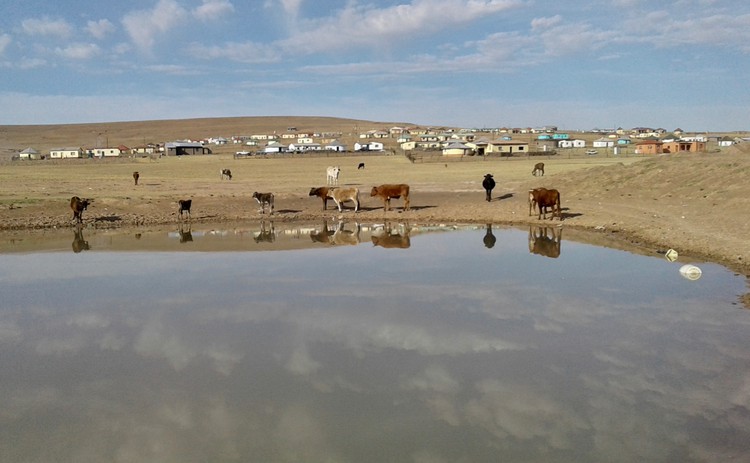Villagers without drinking water blame government, not the drought
Pipes installed in Dutywa villages in 2008 have never had water
Although surrounding villages have clean drinking water, villagers in Xeni and Ngxingweni, Dutywa, in the Eastern Cape do not.
In 2008, government installed pipes for water in the two villages, but the taps have always been dry.
Resident Lahlekile Mphotye said, “Our water taps are just ornaments … I do not know why our taps do not have water while other villages near us have water. We have been putting questions to our municipality about this matter. Since 2008 they have been promising to fix our problem.”
Villagers get water from a dam.
“Horses and cattle urinate in this water that we drink. There are people who throw away the nappies of their kids, then during rainy days those nappies end up in the dam,” said Mphotye.
“There are times when we doubt that we are South Africans because of the treatment that we receive from our government,” he said.
Chief Olwethu Sihlanu said he understood there was drought in the Eastern Cape, but the water in their area was underground and came from the surrounding mountains. He pointed out that nearby villages did have water.
“It’s not that they do not have water because of drought. These [two] villages do not have water because our government does not care about people,” said the chief.
Eastern Cape Water Affairs and Sanitation project manager Jama Mzozoyana said, “We visited the area and saw the situation. This week or next week we are going to have a meeting with the chief and people of these villages. We are going to look at what we can do to make them have purified water.”
Support independent journalism
Donate using Payfast

Don't miss out on the latest news
We respect your privacy, and promise we won't spam you.
Next: Study shows targeted interventions can reduce gender violence
Previous: Uitenhage gogo given the run-around over water leak
© 2019 GroundUp.
This article is licensed under a Creative Commons Attribution-NoDerivatives 4.0 International License.
You may republish this article, so long as you credit the authors and GroundUp, and do not change the text. Please include a link back to the original article.

